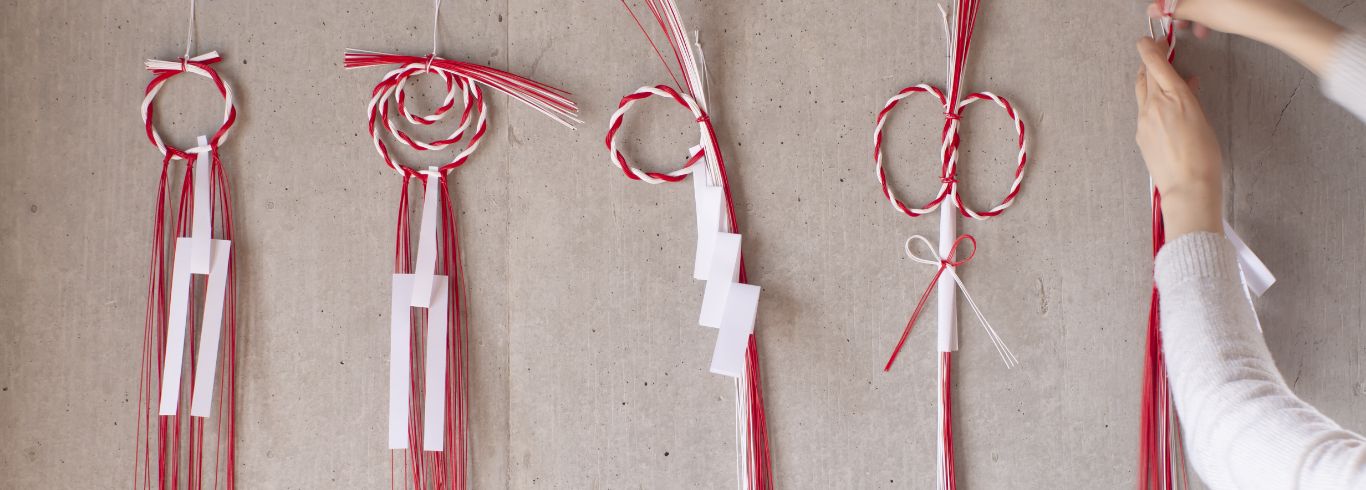About Wakobo Hoyou

Introduction to Mizuhiki
mizuhiki is made by cutting Japanese washi paper into stripes with a width of 2cm, twisting it into a string, stiffening with starch, coloring, and occasionally wrapping with other stripes of paper or winding strings on it. It has been used for gifts for joyous occasions as well as “shugi-bukuro” (envelopes for giving money in celebrations) since ancient times, and has close to a 1300-year history in Japan.
Cultural and Religious Significance
Different from standard ribbon ties, mizuhiki has various religious meanings and a series of reasons for everything from the shape of knot to the color selected. The traditions associated with mizuhiki are derived from the old Japanese social class system. For instance, every fold, color and knot has a “kaku” (rank), and the more intricate the fold and knot become, the higher the rank becomes. This idea of “kaku” itself can be regarded as very Japanese.
Additionally, mizuhiki-zaiku which are crafts made with mizuhiki have been developed. From the Edo to the Meiji period, the mizuhiki-zaiku spread from the samurai class to common people, and a wide variety of knots were created.
Mizuhiki in Modern Ceremonies
mizuhiki is an essential item at yuinou ceremonies (traditional Japanese engagement parties) as it is an event “ties” people and families together. However, as yuinou and wedding celebrations are getting more simplified, only a few people can tie mizuhiki. On the other hand, there is a reappreciation of the beauty of traditional Japanese crafts, and the mizuhiki-zaiku are getting more attention, as we can admire the beauty of the carefully hand-tied “knots”, and feel Japan through them.
Innovation at Wakobo Hoyou
Everyday at “Wakobo Hoyou”, we are exploring new designs that let you enjoy the changing seasons in a modern style while keeping with the ancient Japanese traditions of mizuhiki. We would like to widely share the culture of mizuhiki, which has developed in Japan for over 1,000 years from its Chinese origins, with the world. We happily welcome anyone who is interested in mizuhiki and the fun of knots to come to our workshops. Please contact us from with the form below if you would like more information.
